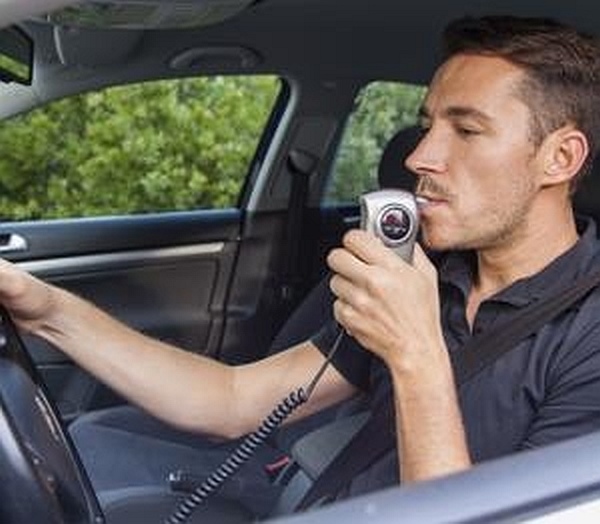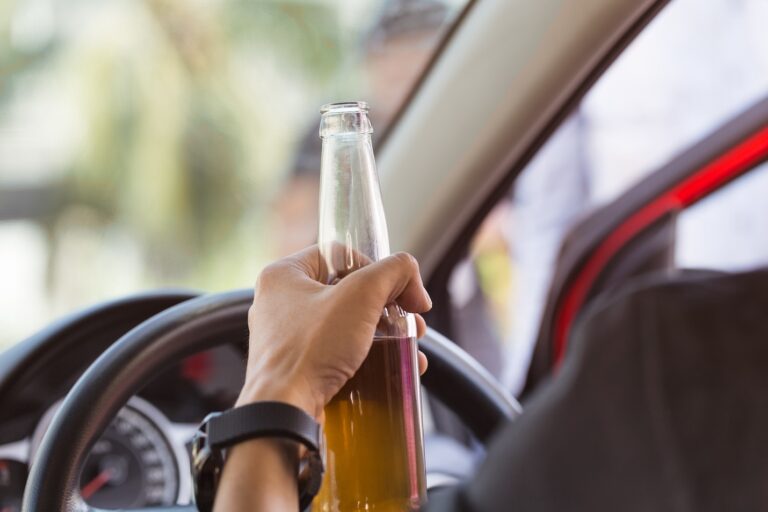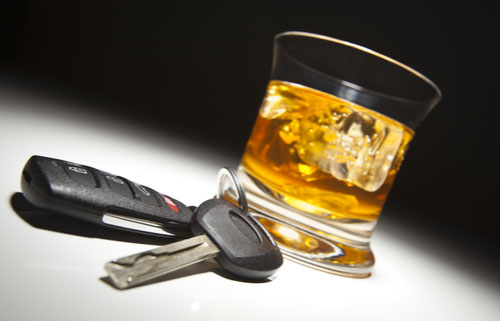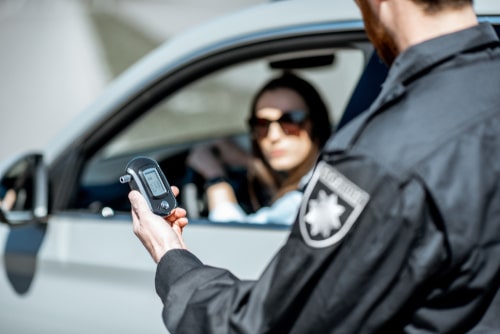Arrested for DUI in Indianapolis? Know What Happens Next
If you have been arrested for DUI in Indianapolis, you are likely facing confusion, fear, and serious legal risks. A DUI arrest can lead to license suspension, fines, jail time, and a permanent criminal record. The decisions you make right now will affect your future.
In this blog, you will learn what happens after a DUI arrest in Indianapolis, what charges you may face, how the legal process works, and why working with an experienced Indianapolis DUI defense attorney is critical to protecting your rights and future.
Immediate Aftermath of a DUI Arrest in Indianapolis
Getting arrested for DUI in Indianapolis triggers a series of legal and administrative steps that begin right at the roadside. Understanding what happens next can help you make informed decisions.
The DUI Stop and Initial Testing
A law enforcement officer may stop your vehicle if they have probable cause, such as a traffic violation or signs of impaired driving. During the stop, you may be asked to perform field sobriety tests. These tests help the officer determine if there is enough evidence to suspect driving under the influence.
If the officer suspects impairment, they may request a breathalyzer test or a chemical test to measure your blood alcohol concentration (BAC). Under Indiana’s Implied Consent Law (Indiana Code § 9-30-6-1), refusing these tests can result in automatic license suspension.
Arrest and Transport to the Police Station
If the officer determines there is probable cause for a DUI arrest, you will be taken into custody. You will be transported to the police station for booking. This includes fingerprinting, taking your photograph, and collecting identifying information.
The officer may also conduct another chemical test at the station. The results will influence the DUI charges filed against you.
Booking, Bail, and Release
After processing, you may be held in jail for a period of time. Release may occur through bail or on your own recognizance. In some cases, a judge may impose conditions such as avoiding alcohol or submitting to random drug tests.
At this point, you may face a license suspension and a potential criminal charge. Contacting an experienced DUI defense attorney early can help protect your driving privileges and build a strong legal defense.
Immediate Legal and Administrative Consequences
Once you are arrested for DUI in Indianapolis, the Bureau of Motor Vehicles (BMV) may take action against your driver’s license. If you failed or refused a chemical test, your license may be suspended even before your first court appearance.
This administrative suspension is separate from any criminal penalties. It is important to act quickly to request a hearing or apply for specialized driving privileges if you qualify.
DUI Charges: Understanding the Offense
After being arrested for DUI in Indianapolis, the exact charges you face depend on several factors, including your blood alcohol concentration and whether any harm occurred.
Types of DUI Offenses in Indiana
In Indiana, the official charge for drunk driving is “Operating a Vehicle While Intoxicated” (OWI). This is commonly referred to as DUI. A first DUI offense with a BAC of 0.08% to 0.15% is usually charged as a Class C misdemeanor under Indiana Code § 9-30-5-1(a). This level of offense may result in fines, jail time, and license suspension.
If your BAC is 0.15% or higher, or if there is evidence of endangering another person, the charge may rise to a Class A misdemeanor. This carries more severe penalties and can affect your record more significantly.
Felony DUI Charges and Aggravating Factors
Certain conditions can lead to felony DUI charges. If the DUI results in serious bodily injury, the offense may be charged as a Level 6 or Level 5 felony under Indiana Code § 9-30-5-4. A DUI involving a child passenger or occurring while driving on a suspended license can also increase the severity of the charge.
Prior convictions for drunk driving offenses within the past five years can elevate a new DUI charge to felony status. The more prior convictions you have, the higher the potential penalties, including extended jail time and longer license suspension.
Legal Consequences of a DUI Conviction
A DUI conviction in Indianapolis affects more than just your driving record. Criminal penalties may include jail time, fines, probation, community service, and mandatory substance abuse programs. Additional penalties may apply for commercial driver’s license holders or drivers under 21.
You may also face restrictions on driving privileges and be required to install an ignition interlock device. These legal consequences can follow you for years and appear on background checks for employment or housing.
The Indiana DUI Legal Process: Step-by-Step
After a DUI arrest in Indianapolis, you will enter the Indiana legal system. The process includes several key stages, each with deadlines and legal requirements that can affect the outcome of your case.
Initial Hearing and Arraignment
Your first court appearance is the initial hearing, also called arraignment. At this hearing, the judge will inform you of the charges against you. You will be asked to enter a plea of guilty or not guilty.
If you plead not guilty, the court will schedule future hearings. It is important to have a DUI defense attorney present to guide you and begin building your case.
Pre-Trial Proceedings
Pre-trial conferences allow both sides to review the evidence. Your attorney can file motions, challenge the legality of the stop, or question the results of the breathalyzer test or chemical test. This is the stage where many DUI cases are resolved with a plea agreement, depending on the facts and prior convictions.
An experienced DUI lawyer may be able to negotiate reduced charges, lighter penalties, or dismissal of certain evidence.
Trial and Verdict
If no agreement is reached, your case will go to trial. DUI trials are typically held before a judge, but in some cases, you may have a jury. The prosecution must prove beyond a reasonable doubt that you were operating a motor vehicle under the influence of alcohol or drugs.
Your DUI defense attorney will present evidence, question witnesses, and argue your case. If you are found not guilty, the case ends. If convicted, sentencing will follow.
Sentencing and Penalties
At sentencing, the judge will decide the penalties based on Indiana DUI laws and the facts of your case. Factors include BAC level, whether bodily injury occurred, and prior convictions. Penalties may include jail time, fines, probation, license suspension, and community service.
In some cases, the court may order you to install an ignition interlock device or attend alcohol education programs. The sentencing decision can affect your driving privileges and criminal record for years.
DUI Defense Strategies That Work
A strong legal defense can make a major difference in the outcome of your DUI case. The right DUI defense attorney will focus on facts, procedures, and your legal rights.
Challenging the Traffic Stop
Police must have probable cause to stop your vehicle. If the law enforcement officer did not have a valid reason, your attorney may file a motion to suppress evidence. If the stop is ruled unlawful, the case may be dismissed.
Your attorney will examine the police report, dash cam footage, and any statements made at the scene to evaluate the legality of the stop.
Questioning Field Sobriety and Chemical Tests
Field sobriety tests are subjective. An experienced DUI attorney can challenge how the tests were administered and whether they were affected by outside factors such as medical conditions or poor weather.
Breathalyzer test and chemical test results may also be challenged. Your defense attorney may question whether the equipment was properly calibrated or whether testing procedures followed Indiana DUI laws. These issues can lead to reduced charges or case dismissal.
Reviewing Officer Conduct and Procedure
Law enforcement officers must follow strict procedures during a DUI arrest. If they failed to read your rights or did not follow proper booking procedures, it may be possible to suppress certain evidence.
Your attorney will look for gaps or errors in the police report and examine how the officer handled the arrest and testing process.
Negotiating a Plea Agreement
Not every DUI case goes to trial. In many cases, your Indianapolis DUI lawyer can work with prosecutors to reach a plea deal. A plea agreement may reduce the charge, lower fines, or help you avoid jail time.
This option is more likely for a first DUI offense or when the evidence is weak. Your attorney will advise if this is a good strategy for your case.
Building a Defense Based on Evidence
Every DUI case depends on details. Your DUI defense attorney will collect evidence, talk to witnesses, and use expert opinions if needed. The goal is to create reasonable doubt or highlight procedural errors that weaken the prosecution’s case.
Protect Your Future with Help from Rathburn Law Office P.C., P.C.
If you have been arrested for DUI in Indianapolis, do not face the legal system alone. Our team at Rathburn Law Office P.C., P.C. has the experience and focus needed to challenge DUI charges, protect your license, and fight for the best possible outcome.
Contact us at 800-800-8000 for a free consultation today!








